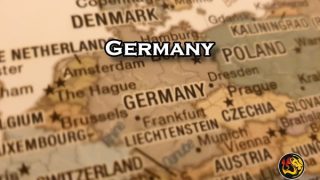
By Stefan J. Bos, Chief International Correspondent, Worthy News
BERLIN/WARSAW (Worthy News) – Friedrich Merz began his first full day as Germany’s new chancellor on Wednesday despite being a politically wounded and weakened leader after failing to win enough parliamentary support in a first vote on Tuesday, which shocked the country’s political establishment.
He ultimately succeeded in a second vote for the top job later in the day, but the tensions exposed his rocky road ahead to govern Europe’s largest economy.
Commentators said it did not help that Germany’s most important and powerful ally for decades—the United States—undermined Merz.
Instead, the administration of U.S. President Donald J. Trump supported Merz’s main political rival, the nationalist Alternative for Germany (AfD) party, despite concerns over its far-right views.
In addition to criticism from the United States, Merz faced opposition in Germany’s 630-seat federal parliament, the Bundestag. In an unprecedented failure in post-war German history, the 69-year-old initially fell six votes short of the absolute majority he needed on Tuesday.
As it was a secret ballot, observers were unsure who had refused to back him, including legislators from his center-left coalition partner or his conservatives.
After hours of uncertainty in the Bundestag, the parties and the president of the Bundestag agreed to hold a second vote, which Merz then won with 325 votes, a majority of nine.
SOCIAL DEMOCRATS
His coalition with the Social Democrats should have had enough seats in parliament from the start, with 328 parliamentarians, but 18 reportedly dissented during the first vote.
No chancellor candidate has lost a Bundestag vote in the 76 years since democracy was restored in Germany in 1949, and there was a prevailing mood of confusion in parliament in the hours after the vote.
Under Germany’s constitution, the number of votes a new chancellor can receive is unlimited. But another defeat for Merz would mean more headaches for his Christian Democrats, its sister party, the Christian Social Union, and their partner, the Social Democrats.
Following the vote, President Frank-Walter Steinmeier swore him in as chancellor, and his team of 17 ministers was due to take office.
Merz took over a nation facing concerns that its economy is driving off a cliff, and its automotive industry is struggling to survive.
While car makers such as Mercedes-Benz, BMW, and Volkswagen fueled Germany’s rise as Europe’s economic powerhouse, that same sector is in crisis..
They are facing a shift from the combustion engine, which showcased German engineering, to less complex electric vehicles, where Germany doesn’t control crucial battery technology.
SLUMPING DEMAND
They are also battling slumping demand for electric vehicles in Europe, high energy and labor costs, a collapse of sales in their key market of China, and the arrival of aggressive Chinese rivals on the continent.
Despite these economic challenges, the new government of the center-right bloc of Christian Democratic Union and Christian Social Union CDU/CSU and the center-left Social Democratic Party (SPD) agreed on a nearly $1.1 trillion package for defense, infrastructure, and “climate protection.”
Merz’s Germany will also deal with the ongoing influx of asylum seekers fleeing mainly Muslim nations such as Syria, as well as war-torn Ukraine.
On Wednesday, Merz met with Poland’s Prime Minister Donald Tusk in Warsaw for a meeting that was described as a “new opening” in relations with Germany at a time of European insecurity.
Mesz stressed that both governments “will keep up their support” for Ukraine.
The two leaders also discussed illegal migration, with Tusk saying control of the influx should focus on the European Union’s external borders.
Copyright 1999-2026 Worthy News. This article was originally published on Worthy News and was reproduced with permission.
Latest News from Worthy News
Israel says its war against Iran is entering a more intense phase after the Israeli Air Force achieved broad air superiority and severely weakened the regime’s military infrastructure.
Concerns grew Thursday that the U.S.-Israeli conflict with Iran could affect the war in Ukraine, amid fears Washington may soon lack sufficient munitions to continue supporting Kyiv, including through its European allies.
The Trump administration has ended federal funding for gender-transition surgeries and cross-sex hormone treatments for transgender inmates in federal prisons, a policy shift officials say will save taxpayers nearly $2 million.
A widespread power outage plunged large portions of Cuba into darkness Wednesday, leaving millions without electricity across the island’s western and central regions, including the capital city of Havana.
Hundreds of Christians, including family members, have protested the killing of a young Christian agricultural worker by one or more Muslims in Pakistan’s eastern Punjab province and the alleged reluctance by authorities to properly investigate the case.
Treasury Secretary Scott Bessent said Wednesday that President Donald Trump’s newly announced 15% global import tariff is expected to take effect sometime this week as the administration moves to rebuild its tariff framework after a recent Supreme Court ruling struck down part of the president’s trade agenda.
President Donald Trump met Wednesday with leaders of major technology companies at the White House as they formally backed a new initiative designed to prevent the rapid expansion of artificial intelligence data centers from driving up electricity prices for American consumers.







